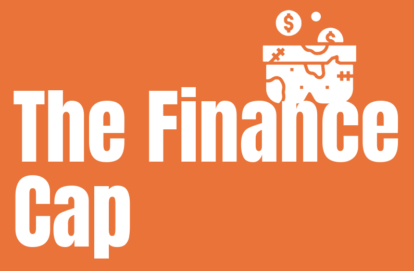The Best Personal Finance Books to Transform Your Financial Future
Managing money effectively is a skill that can shape your life for the better. Yet, it’s one area where many people struggle. From budgeting and saving to investing and building wealth, personal finance can feel overwhelming without the right guidance. That’s where great books come in. In this post, I’ll share the top 10 personal finance books that have helped millions of readers build wealth, overcome debt, and achieve financial independence.
Whether you’re just starting your financial journey or looking to refine your money management skills, there’s a book for everyone. A well-written personal finance book can simplify complex concepts, motivate you to take control of your money, and provide actionable strategies to achieve your financial goals. These books are not just about numbers—they’re about transforming how you think about and interact with money. Let’s get into the list!

Top 10 Personal Finance Books
1. Your Money or Your Life by Vicki Robin and Joe Dominguez
This timeless classic focuses on reshaping your relationship with money. Robin and Dominguez encourage readers to see money not just as currency but as life energy. The book provides actionable steps for tracking expenses, calculating your real hourly wage, and achieving financial independence. It’s all about aligning your spending habits with your values and creating a life that’s both fulfilling and financially secure.
Why it’s a must-read: If you’ve ever felt stuck in the cycle of earning and spending, this book offers a fresh perspective that can help you break free and focus on what truly matters.
2. The Total Money Makeover by Dave Ramsey
Dave Ramsey’s step-by-step plan has become a go-to guide for anyone looking to get out of debt and build wealth. His “Baby Steps” program walks readers through paying off debt, creating an emergency fund, and investing for the future. Ramsey’s no-nonsense approach emphasizes living within your means and avoiding debt altogether.
Why it’s a must-read: This book is perfect for anyone struggling with debt who needs a clear, actionable plan to regain financial stability.
3. I Will Teach You to Be Rich by Ramit Sethi
With a conversational and often humorous tone, Ramit Sethi simplifies personal finance for millennials and young professionals. His six-week program covers everything from choosing the right credit card and automating finances to investing and saving for big goals. Sethi’s focus is on creating a system that allows you to enjoy life while building wealth.
Why it’s a must-read: It’s an ideal guide for young adults looking for a straightforward, practical approach to managing their finances without sacrificing fun.
4. The Simple Path to Wealth by J.L. Collins
J.L. Collins takes the intimidating world of investing and makes it approachable. This book advocates for low-cost index fund investing, avoiding debt, and achieving financial independence. Collins breaks down the basics of how money works and provides a clear path to building wealth over time.
Why it’s a must-read: If you’re interested in early retirement or just want to make investing simple and stress-free, this book is an excellent choice.
5. The Psychology of Money by Morgan Housel
Morgan Housel’s book isn’t just about managing money—it’s about understanding the emotions and behaviors that drive financial decisions. Through 19 short stories, Housel explores themes like the power of compounding, the role of luck, and why patience is crucial in investing. This book emphasizes that success with money is more about behavior than technical know-how.
Why it’s a must-read: It offers a fresh perspective on the emotional side of money, making it a valuable read for anyone looking to improve their financial mindset.
6. Rich Dad Poor Dad by Robert Kiyosaki
Robert Kiyosaki’s bestselling book contrasts the financial philosophies of his two “dads”: his biological father (the “poor dad”) and his best friend’s father (the “rich dad”). The book challenges traditional ideas about money and education, emphasizing the importance of financial literacy, investing, and entrepreneurship.
Why it’s a must-read: This book inspires readers to think differently about money and take control of their financial education.
7. The Millionaire Next Door by Thomas J. Stanley and William D. Danko
This groundbreaking book reveals that many millionaires live modestly, prioritize saving and investing, and rarely indulge in luxury spending. Through data and case studies, Stanley and Danko debunk myths about wealth, showing that becoming a millionaire is often the result of discipline and smart financial choices.
Why it’s a must-read: It provides a realistic and attainable blueprint for building wealth, regardless of your income level.
8. Get Good with Money by Tiffany Aliche
Known as “The Budgetnista,” Tiffany Aliche offers a ten-step plan to achieve financial wholeness. Her book covers everything from budgeting and saving to investing and estate planning. Aliche’s practical advice and empowering tone make this book accessible to readers at any stage of their financial journey.
Why it’s a must-read: If you’re new to personal finance or need a structured plan to tackle multiple areas of your finances, this book is a great resource.
9. The Intelligent Investor by Benjamin Graham
Considered the bible of investing, Benjamin Graham’s book focuses on value investing and long-term wealth building. It teaches readers how to evaluate stocks and bonds, understand market fluctuations, and avoid emotional investing. Warren Buffett has often credited this book as a major influence on his investment philosophy.
Why it’s a must-read: If you’re serious about investing and want a deep understanding of how the market works, this classic is essential.
10. The Little Book of Common Sense Investing by John C. Bogle
John C. Bogle, founder of Vanguard, advocates for the simplicity and reliability of low-cost index funds. He explains why most actively managed funds fail to beat the market and how investors can maximize returns by minimizing fees and sticking to long-term strategies.
Why it’s a must-read: This book is perfect for beginners who want to start investing with confidence and avoid common pitfalls.
How These Personal Finance Books Can Transform Your Financial Journey
Personal finance can feel like an overwhelming topic, but the right resources can make a world of difference. The books on this list go beyond providing basic financial advice—they offer a roadmap for transforming your relationship with money. Whether you’re looking to pay off debt, save for a big goal, or start investing, each of these books equips you with the tools and mindset needed to succeed.
What makes these books stand out is their ability to address different aspects of personal finance. For example, “Your Money or Your Life“ focuses on aligning your spending with your values, encouraging a deeper understanding of how money supports your happiness and goals. On the other hand, “The Intelligent Investor“ takes a more technical approach, guiding readers through the complexities of investing with a value-driven mindset. Together, these books cater to a range of needs and perspectives, making them ideal for readers at any stage of their financial journey.
Another reason these books are so impactful is their focus on building sustainable habits. For instance, Dave Ramsey’s “The Total Money Makeover“ emphasizes discipline and consistency through his step-by-step plan, helping readers establish financial stability and avoid common pitfalls. Meanwhile, Tiffany Aliche’s “Get Good with Money“ provides a holistic view of financial health, tackling everything from budgeting and saving to investing and insurance in a practical, relatable way. These strategies are designed to not only improve your financial situation in the short term but also set you up for long-term success.
It’s not just about numbers and strategies—these books delve into the psychology of money and behavior. “The Psychology of Money“ by Morgan Housel is a prime example, exploring how emotions and personal experiences shape our financial decisions. By understanding the mental and emotional factors that influence spending, saving, and investing, readers can develop healthier financial habits and make smarter choices. This deeper understanding of money’s role in our lives can lead to a more fulfilling and balanced approach to personal finance.
Each of these books also highlights the importance of financial education. Robert Kiyosaki’s “Rich Dad Poor Dad“ challenges traditional ideas about money and education, advocating for financial literacy and entrepreneurship as paths to success. Similarly, J.L. Collins’ “The Simple Path to Wealth“ simplifies investing, making it accessible to anyone who wants to build wealth without stress or complexity. These lessons empower readers to take charge of their finances with confidence, regardless of their starting point.
By diving into one or more of these books, you’re not just learning how to manage money—you’re gaining a new perspective on what financial independence means and how to achieve it. These authors share proven strategies, practical advice, and inspiring stories that can motivate you to take actionable steps toward your goals. Whether you’re working to get out of debt, grow your savings, or start investing, the insights you gain will set you on a path toward greater financial security and freedom.
Ultimately, personal finance is about more than just dollars and cents—it’s about creating a life that aligns with your values, goals, and dreams. These books are a gateway to understanding how to manage your money effectively while also achieving a sense of purpose and peace of mind. As you take what you learn and put it into practice, you’ll discover the power of financial literacy and its ability to transform your future. Start with one of these books today, and take the first step toward becoming the master of your money and the architect of your financial destiny.
